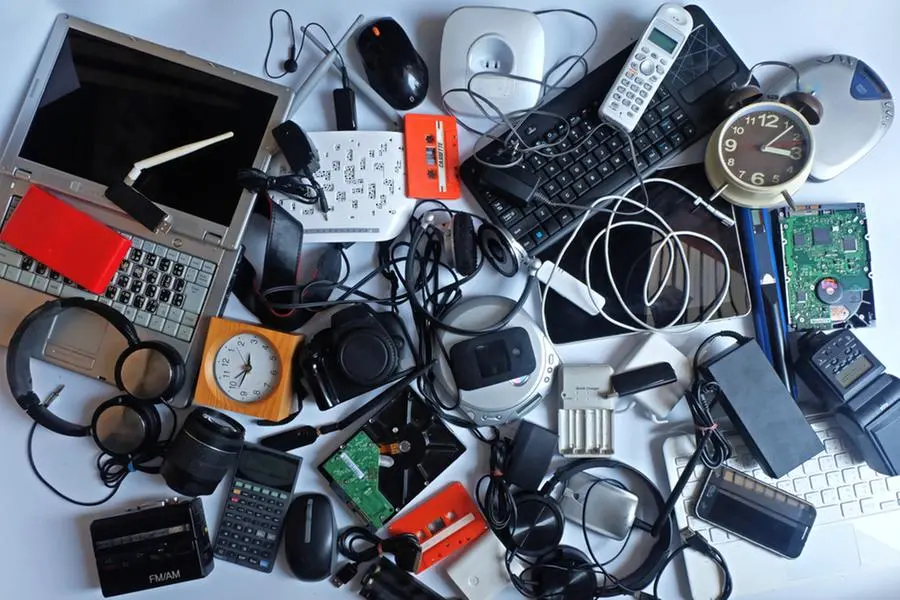PHOTO
From ESG milestones to significant cost savings, the business benefits of tech regeneration are something every company in South Africa needs to be prioritising.
At this moment, companies across the country have old laptops, phones and other tech assets that have been sitting in drawers and storerooms for years. When the time comes to address this issue, companies often incur additional costs for destruction or inefficient recycling, and in some cases, improper disposal.
In all cases, the asset value is a write-off and depending on how often companies refresh their tech, this is an ongoing expense and logistical problem. It’s time South African businesses adopt a circular mindset and realise that there is a better way to handle ageing tech and e-waste that has tangible financial benefits alongside environmental ones.
From trade-in and buy-back programmes, to redeploying refurbished tech back into your business, there are smart solutions for businesses to curb costs while stepping into the future of tech regeneration alongside global companies.
SA is falling behind global tech-waste standards
Globally, five times more e-waste is produced than is formally recycled, with tech recycling in Africa being the lowest in the world at less than 1%. If we look at current global business e-waste standards and ESG expectations, South Africa needs to catch up.
tech has become a growing practice across Europe where e-waste management and legislation are particularly robust. For example, this year the EU passed a [[https://www.europarl.europa.eu/news/en/press-room/20240419IPR20590/right-to-repair-making-repair-easier-and-more-appealing-to-consumers “Right to Repair” directive to support consumers and businesses to refurbish their existing tech rather than purchase only new devices, keeping e-waste out of landfills while saving buyers money.
Following in the footsteps of global players, I believe that it’s achievable for South African businesses to ensure that 20% of their in-house devices are refurbished or redeployed by 2026.
What to do with your decommissioned tech?
Out of all your IT assets, laptops, tablets, phones and monitors carry the most value. Many companies have policies about when to refresh and buy new devices. When that time comes, it’s imperative that the older models do not get packed away into storerooms. Because the more time passes, the more their value depreciates when it comes to trade-in and buy-back options.
Once devices are decommissioned, one course of action is to trade them in with the original providers you bought them from and get a more affordable price on your new tech. For example, one can receive up to 50% of the value from Apple products when trading them in after a year. The value you receive back depends on the brand, the model and the state of the device.
An advanced option that fulfils even more business criteria is to have your tech bought by a certified recommerce company. This means that you get capital back from your old devices, while a reputable recommerce company ensures the security of your data with a fully accredited data wipe. They then provide an ESG report on the avoided carbon emissions which can be used for your own environmental reporting.
These devices are then resold through professional channels, and anything that can’t be fixed or reused is ethically recycled.
A redeployment programme extends the lifespan of your tech
Recommerce companies can also manage what is called a “redeployment” programme for a company’s refurbished tech. This means buying back old devices that have been safely wiped of data and professionally fixed, and then “redeploying” them back into your own business at levels of your organisation that are more admin heavy and less dependent on upgraded models.
Redeployment programmes are a smart way to cut costs and extend the life of IT assets, while being able to include this as part of ESG efforts.
One of the misconceptions around refurbished tech is that it is suboptimal. However, when purchasing or redeploying from accredited recommerce companies, all refurbished devices are fully functional and come with warranties, just like new equipment.
When it comes to their physical appearance, there is a grading system that will rank a device accordingly, considering if it has some signs of use, or if it can be considered essentially new.
A win-win solution for businesses and the environment
So, what about the environment? While JSE-listed companies are required to publish ESG reports annually, they are still not formally legislated for South African business.
However, globalised companies in South Africa are coming under pressure to keep up with their overseas counterparts that are taking the problem of e-waste as a business cost and environmental issue very seriously.
Increasingly in South Africa and globally, consumers favour businesses that make strong commitments to sustainability and environmental stewardship. In return, companies doing the right thing have been rewarded with significant positive brand awareness.
It’s time for South African businesses to see the opportunity in their tech waste as a win-win for their finances and public perception, as well as doing right by the planet.
All rights reserved. © 2022. Bizcommunity.com Provided by SyndiGate Media Inc. (Syndigate.info).





















